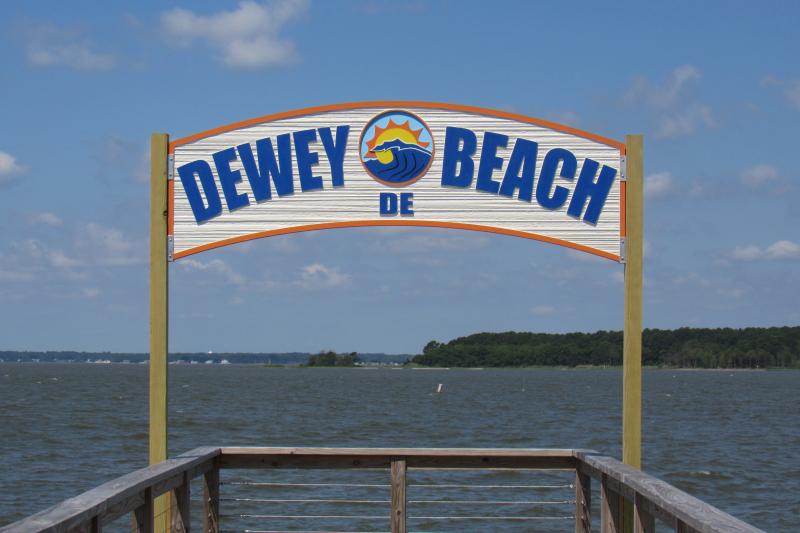Dewey residents rail against US Wind offer
After much public comment lambasting a $2 million community benefit proposal extended to the Town of Dewey Beach by US Wind, commissioners tabled a vote on the offer until at least September.
At the Jan. 19 commissioners meeting, Mayor Bill Stevens said the town received hundreds of emails from residents who may have been misinformed that the noticed vote was to approve the windmills.
“We’re not here to put the windmills out there,” Stevens said. “I wanted the community to know that this is something I want you guys to weigh in on. Do you want the town to accept the community benefit to move forward, to delay the community benefit, or to decline the community benefit?”
In December, US Wind presented a community benefits package to select coastal towns that proposes paying each $100,000 annually for 20 years, for a total of $2 million, provided they will not use any discretionary authority to obstruct or delay the wind project. Payments would begin when construction begins.
Stevens introduced Mike Dunmyer, US Wind Delaware development manager, who said his company has the rights to an 80,000-acre lease area off the coast of Ocean City, Md., and has two contracted projects, MarWin and Momentum Wind. US Wind has proposed up to 121 turbines and four offshore substations to provide 1,100 megawatts of clean energy to 340,000 homes, he said.
Turbines would range from 817 to 938 feet high; the closest would be 15 miles from Fenwick Island, 17 miles from Bethany, 24 miles from Dewey and 26 miles from Rehoboth, he said. Open space in the leased area may be built out at some point in the future, he said, and would decrease the land-to-windmill distance by 4 miles.
Plans call for the grid connection to occur at a substation next to the Dagsboro coal plant through landfall areas at Tower Road south of Dewey and 3R’s Road south of Indian River Inlet, Dunmyer said. Five cable corridors would take cables from landfall to the substation, Dunmyer said; cables would be buried along the entire route.
The towns/cities of South Bethany, Bethany Beach, Dewey Beach, Rehohoth Beach and Henlopen Acres were approached with the agreement, Dunmyer said. Towns will be permitted to use the funds as they see fit, with a focus on coastal resiliency, stormwater management, flooding abatement, coastal waterway maintenance and dredging.
Towns may drop out of the agreement at any time for any reason; in so doing, towns would forfeit future payments and return their last two years’ payments to US Wind.
During public comment, Stevens asked audience members who wished to speak to remain seated, rather than come to the podium, and a microphone was passed around. Residents also commented via Zoom.
Several speakers called the $100,000 annual payment a paltry sum, a payoff, and a small figure for a peace offering or goodwill payment.
“The Starboard does that in an average day,” one resident said to murmurs and chuckles from the audience.
Another resident said a good neighbor wouldn’t put windmills up in the neighborhood, and that the town has witnessed the state’s action in permitting wireless poles on the dunes.
“We don’t see the state of Delaware looking out for our best interests,” he said.
Dunmyer noted that he has homes in Dewey and Lewes. With skin in the game, he said he is sympathetic to residents’ concerns and has spent his career working on climate change issues to protect the peninsula. With the ocean warming and sea level rising, he said, time is running out.
At this, a resident stated that “climate change is a whole bunch of BS” and said he would not buy into Dunmyer’s propaganda. “Carbon dioxide creates life,” he said. Another likened the $2 million payment to the offering of a snake oil salesman.
A resident of Fenwick Island encouraged coastal towns to collaborate and not give up their power to speak.
Another resident noted, which was echoed by Commissioner Gary Persinger, that a $2 million payment spread out over 20 years actually equates to about $1 million to $1.5 million with inflation considered.
Stevens said he did not want to push the issue through, stating it’s a big agreement with a small payment in overall value and unknown effects. Stevens said he would like to postpone a vote until after the Bureau of Ocean Energy Management approves or disapproves plans in September.
Persinger said it was not clear what type of action the town would take that would be considered discretionary authority against the wind project. Dunmyer is a former town commissioner who is a credible spokesperson, Persinger said, but while he believes US Wind has used the best possible science in its operations, wind energy is an evolving science, and he would like the town to be able to take a stand if new discoveries make that necessary.
At this point, Persinger said, he would not be supportive of the town signing the agreement.
Commissioner Paul Bauer said he agreed not to accept the offer today, and council voted unanimously to table the vote.
















































